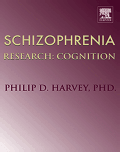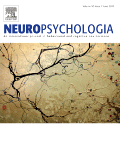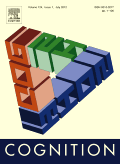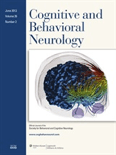
JOURNAL OF CLINICAL AND EXPERIMENTAL NEUROPSYCHOLOGY
Scope & Guideline
Bridging clinical practice and experimental insights.
Introduction
Aims and Scopes
- Neuropsychological Assessment and Testing:
The journal emphasizes the development and validation of neuropsychological assessments, including performance validity tests and cognitive batteries, to enhance diagnostic accuracy and treatment planning. - Cognitive Impairments and Disorders:
Research on cognitive deficits associated with various disorders, such as Alzheimer's disease, traumatic brain injury, and multiple sclerosis, is a core focus, aiming to identify underlying mechanisms and improve patient outcomes. - Cognitive Reserve and Aging:
The relationship between cognitive reserve, aging, and cognitive decline is explored to understand how resilience factors can mitigate cognitive impairment in aging populations. - Innovative Research Methodologies:
The journal promotes innovative research methodologies, including the use of virtual reality, online assessments, and neuroimaging techniques, to investigate cognitive functions and neuropsychological constructs. - Interdisciplinary Approaches:
An interdisciplinary perspective is encouraged, integrating insights from psychology, neuroscience, and clinical practice to address complex neuropsychological issues.
Trending and Emerging
- Telehealth and Remote Assessments:
The rise of telehealth, especially during and post-COVID-19, has led to increased publications on remote neuropsychological assessments, highlighting their effectiveness and utility in diverse populations. - Mental Health and Cognitive Function Interactions:
Studies exploring the interplay between mental health conditions (such as depression and anxiety) and cognitive functions are trending, emphasizing the importance of integrated approaches in clinical settings. - Cultural and Contextual Factors in Neuropsychology:
There is a growing focus on cultural influences on neuropsychological processes and assessments, promoting a more inclusive understanding of cognitive health across diverse populations. - Innovative Cognitive Interventions:
Research on innovative cognitive interventions, including virtual reality and gamified cognitive training, is emerging as a significant area of interest, aiming to enhance cognitive rehabilitation strategies. - Neuropsychological Profiles in Specific Populations:
Increased attention is being given to neuropsychological profiles of specific populations, including those with chronic illnesses, neurodevelopmental disorders, and traumatic brain injury, to tailor interventions more effectively.
Declining or Waning
- Traditional Performance Validity Testing:
Although performance validity testing remains important, there is a noticeable decline in studies solely focused on traditional methods, as researchers seek more nuanced approaches that incorporate neurocognitive and ecological validity. - Static Neuropsychological Assessments:
The reliance on static, traditional neuropsychological assessments is waning, with a move toward dynamic assessments that consider real-world functioning and context-specific evaluations. - Generalized Cognitive Decline Studies:
Research centered on generalized cognitive decline without specific context or application is decreasing, as the field narrows its focus to more targeted studies addressing specific disorders or populations.
Similar Journals

NEUROPSYCHOLOGY REVIEW
Bridging Psychology and Neuroscience for Deeper InsightsNEUROPSYCHOLOGY REVIEW is a prestigious journal published by Springer, dedicated to the exploration of cognitive processes and behavior through neurological and psychological perspectives. With its ISSN 1040-7308 and E-ISSN 1573-6660, this journal holds a distinguished position in Q1 of the Neuropsychology and Physiological Psychology category, ranking at #3 out of 76 with an impressive 96th percentile in Scopus. Since its inception in 1990, it has provided a critical platform for researchers, professionals, and students to disseminate and engage with comprehensive reviews and empirical research, promoting a deeper understanding of the interplay between neural mechanisms and psychological phenomena. Aimed at fostering interdisciplinary collaboration and advancement in the field, NEUROPSYCHOLOGY REVIEW invites contributions that push the boundaries of knowledge and stimulate ongoing debates in neuropsychology, making it an invaluable resource for anyone interested in the latest scientific advancements within this dynamic area.

JOURNAL OF COGNITIVE NEUROSCIENCE
Advancing the frontiers of cognitive understanding.Welcome to the JOURNAL OF COGNITIVE NEUROSCIENCE, a premier publication in the field of cognitive neuroscience, published by the esteemed MIT PRESS. Since its inception in 1989, this journal has been at the forefront of advancing our understanding of the neural mechanisms underlying cognitive processes, boasting an impressive convergence period through 2024. With its Q1 ranking in the 2023 cognitive neuroscience category, it stands out among 115 peers, indicating its critical role in shaping contemporary research. The journal offers a comprehensive array of research articles, reviews, and methodologies aimed at researchers, professionals, and students alike, facilitating the exploration of complex cognitive functions. While not an open-access journal, it provides essential insights and significant contributions to the neuroscience community, making it an invaluable resource for anyone keen on delving into the intricacies of the human brain.

Schizophrenia Research-Cognition
Bridging cognitive neuroscience and clinical practice.Schizophrenia Research-Cognition is an esteemed journal dedicated to advancing the understanding of cognitive aspects of schizophrenia and related mental health disorders. Published by Elsevier, this Open Access journal has been a pivotal platform since its inception in 2014, facilitating the dissemination of high-quality research findings to a global audience. With a notable impact factor and categorized in the Q2 quartile for both Cognitive Neuroscience and Psychiatry and Mental Health, it ranks among the top journals in these fields, currently positioned at #171 out of 567 in Psychiatry and at #40 out of 115 in Cognitive Neuroscience according to Scopus metrics. Located in the United States, and published under the auspices of Elsevier, the journal aims to provide an insightful forum for researchers, clinicians, and students interested in the cognitive underpinnings of schizophrenia, promoting innovative research that bridges the gap between cognitive neuroscience and clinical application. Schizophrenia Research-Cognition's commitment to open access ensures wide-reaching impact and engagement from the research community and beyond.

JOURNAL OF THE INTERNATIONAL NEUROPSYCHOLOGICAL SOCIETY
Pioneering Insights in Clinical NeuropsychologyJOURNAL OF THE INTERNATIONAL NEUROPSYCHOLOGICAL SOCIETY, published by Cambridge University Press, stands as a premier outlet for advancing the understanding of neuropsychology and its clinical applications. With a solid impact reflected in its Q1 categorizations in both Clinical Psychology and Neurology, alongside impressive Scopus rankings, this journal plays a critical role in disseminating cutting-edge research from 1995 to the present. It caters to a diverse academic community, including researchers, clinicians, and students, by providing a comprehensive platform for original research, reviews, and insightful commentaries that explore the intersection of neurological disorders and cognitive functions. Although not currently offered as an Open Access journal, its rigorous peer-review process ensures the highest standards of scholarly excellence. Engaging with the JOURNAL OF THE INTERNATIONAL NEUROPSYCHOLOGICAL SOCIETY means staying at the forefront of neuropsychological science and clinical practice.

Neuropsychologia
Unlocking the Secrets of the Mind through Innovative StudiesNeuropsychologia, published by PERGAMON-ELSEVIER SCIENCE LTD, is a premier journal that delves into the intersections of psychology and neuroscience, specifically focusing on behavioral and cognitive processes. Since its inception in 1963, this esteemed journal has been a vital platform for researchers, professionals, and students, showcasing innovative studies and advancements in the fields of Behavioral Neuroscience, Cognitive Neuroscience, and Experimental Psychology. With a commendable impact factor, placing it in the Q2 category across multiple disciplines, Neuropsychologia is recognized for its contribution to the scientific community, ranking among the top journals in both Experimental and Cognitive Psychology and Neuroscience. The journal's commitment to excellence is evident in its rigorous peer-review process and its mission to disseminate cutting-edge research, making it an invaluable resource for those seeking to expand their knowledge and insights in neuropsychology. For further reading, the journal is accessible in both print and digital formats, ensuring that researchers can easily engage with the latest findings and theoretical advancements in this dynamic field.

Cuadernos de Neuropsicologia-Panamerican Journal of Neuropsychology
Transforming research into practical applications.Cuadernos de Neuropsicologia-Panamerican Journal of Neuropsychology is a premier open access journal dedicated to advancing the field of neuropsychology through the dissemination of high-quality research. Published by NEUROPSICOLOGIA CL in Chile, this journal has been a vital resource for the academic community since its inception in 2007. With a focus on various aspects of neuropsychological theory and practice, the journal aims to bridge the gap between research and application, addressing key issues in diagnosis, treatment, and rehabilitation of cognitive disorders. By providing a platform for innovative studies, systematic reviews, and compelling case reports, Cuadernos de Neuropsicologia plays an instrumental role in shaping the future of neuropsychology in the Pan-American region and beyond. Researchers, clinicians, and students alike will find this journal invaluable for staying informed on the latest trends and findings in their field.

Aging Brain
Pioneering Insights into the Aging ProcessAging Brain is a premier Open Access journal published by Elsevier, dedicated to advancing the understanding of the neurobiological changes associated with aging. Since its commencement in 2021, this journal has been pivotal in disseminating high-quality research that explores the intricate relationships between aging and cognitive functions, neurological disorders, and overall brain health. With a notable commitment to open accessibility, Aging Brain ensures that vital findings are available to a global audience, fostering collaboration and innovation in the field. Researchers, healthcare professionals, and students alike will find a rich repository of cutting-edge studies, reviews, and insights aimed at addressing the complexities of the aging brain. The journal stands as an influential platform for those passionate about enhancing the quality of life for the aging population, making it a valuable resource in gerontology and neuroscience.

Cognition
Elevating Understanding through Cutting-Edge ResearchCognition, published by Elsevier, is a leading journal dedicated to the exploration and advancement of knowledge in the multifaceted fields of cognitive neuroscience, cognitive psychology, and linguistics. Since its inception in 1972, this prestigious journal has established itself as a prominent platform for disseminating innovative research and critical reviews, achieving a remarkable Q1 ranking across various relevant categories, including Cognitive Neuroscience and Developmental Psychology, as per the 2023 metrics. With a focus on providing insights that are vital for researchers, professionals, and students alike, Cognition boasts an impressive standing in the academic community, evidenced by its high Scopus rankings which place it in the top percentiles in several disciplines. Researchers interested in the cognitive processes underlying human thought, language, and behavior will find Cognition an invaluable resource that publishes cutting-edge findings and fosters interdisciplinary collaboration. Though it operates under a traditional access model, the breadth and depth of its content ensure it remains integral to advancing cognitive science.

Cognitive and Behavioral Neurology
Innovating Research in Neurology and CognitionCognitive and Behavioral Neurology is a prominent peer-reviewed journal dedicated to advancing the understanding of cognitive and behavioral aspects of neurological disorders. Published by Lippincott Williams & Wilkins, this journal has established itself as a vital resource for researchers, clinicians, and students in the fields of cognitive neuroscience, neuropsychology, and psychiatry. With an ISSN of 1543-3633 and an E-ISSN of 1543-3641, it offers a robust platform for the dissemination of high-quality research, as evidenced by its positioning in the Q3 quartiles across various categories, including Cognitive Neuroscience and Psychiatry. The journal, which has been actively publishing since 2003, encourages innovative studies that explore the intersection of cognition and behavior in neurological contexts. As a vital contributor to the academic dialogue on these topics, it provides an essential archive of findings and discussions that inform clinical practice and educational approaches, reflecting its commitment to improving patient outcomes and enhancing neurological science.

NEUROREHABILITATION AND NEURAL REPAIR
Advancing the Future of Neurorehabilitation.NEUROREHABILITATION AND NEURAL REPAIR, published by SAGE Publications Inc, is a leading journal in the fields of neurology and rehabilitation, addressing critical issues in neurorehabilitation across a broad spectrum of neurological disorders. With an impressive impact factor and consistently ranked in the Q1 category in both Neurology and Rehabilitation, this journal is esteemed for its rigorous peer-reviewed research contributing to advancements in clinical practice and rehabilitation strategies. The journal boasts an HIndex that reflects its global influence and is highly regarded among professionals and researchers, ranking in the top tiers of Scopus metrics across various categories. Since its inception in 1987, NEUROREHABILITATION AND NEURAL REPAIR has fostered innovative research aimed at improving outcomes for patients with neurological impairments, making it a crucial resource for those engaged in clinical research and therapeutic interventions. Explore this prestigious journal to stay at the forefront of developments in neurorehabilitation, with access options available for diverse readerships.